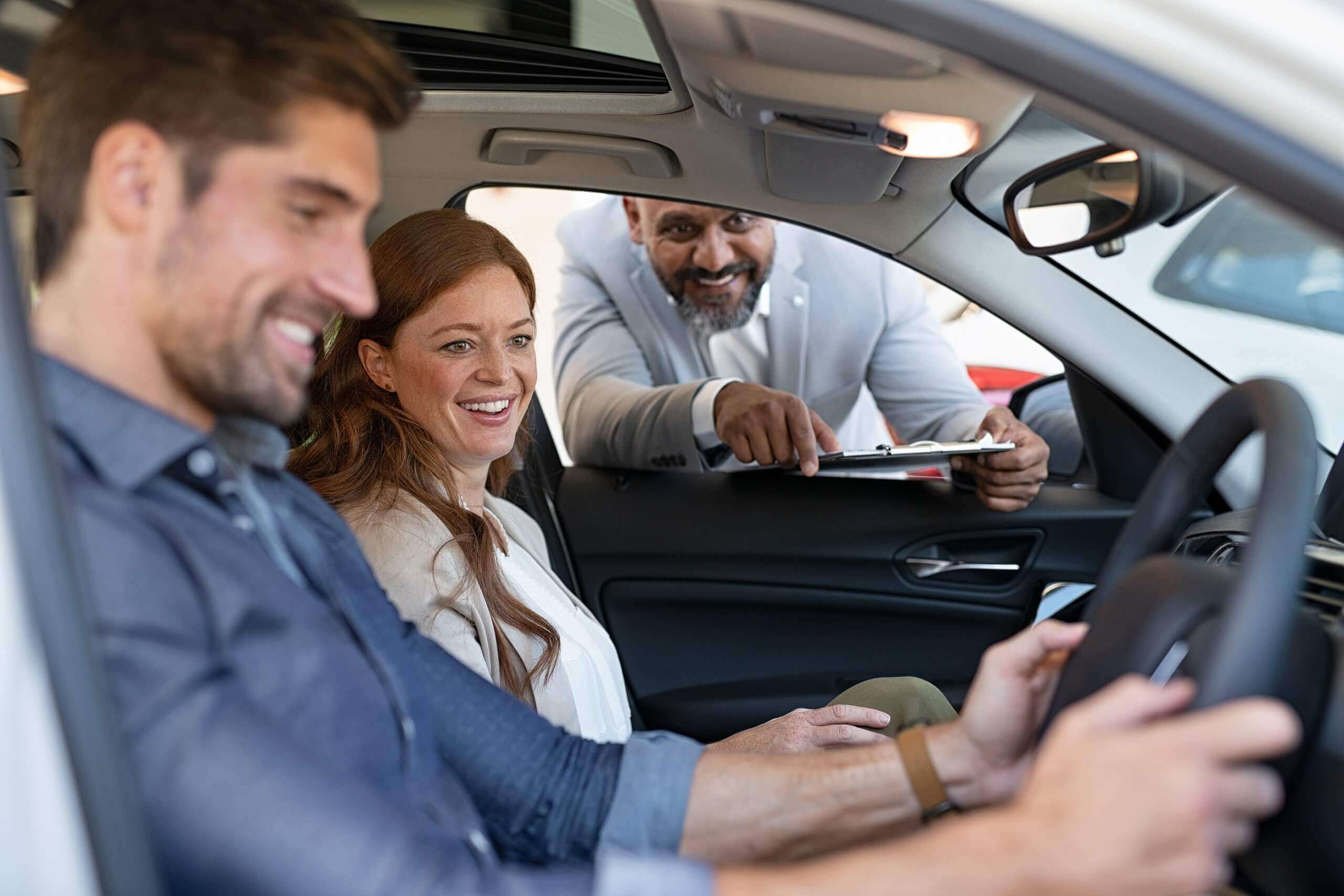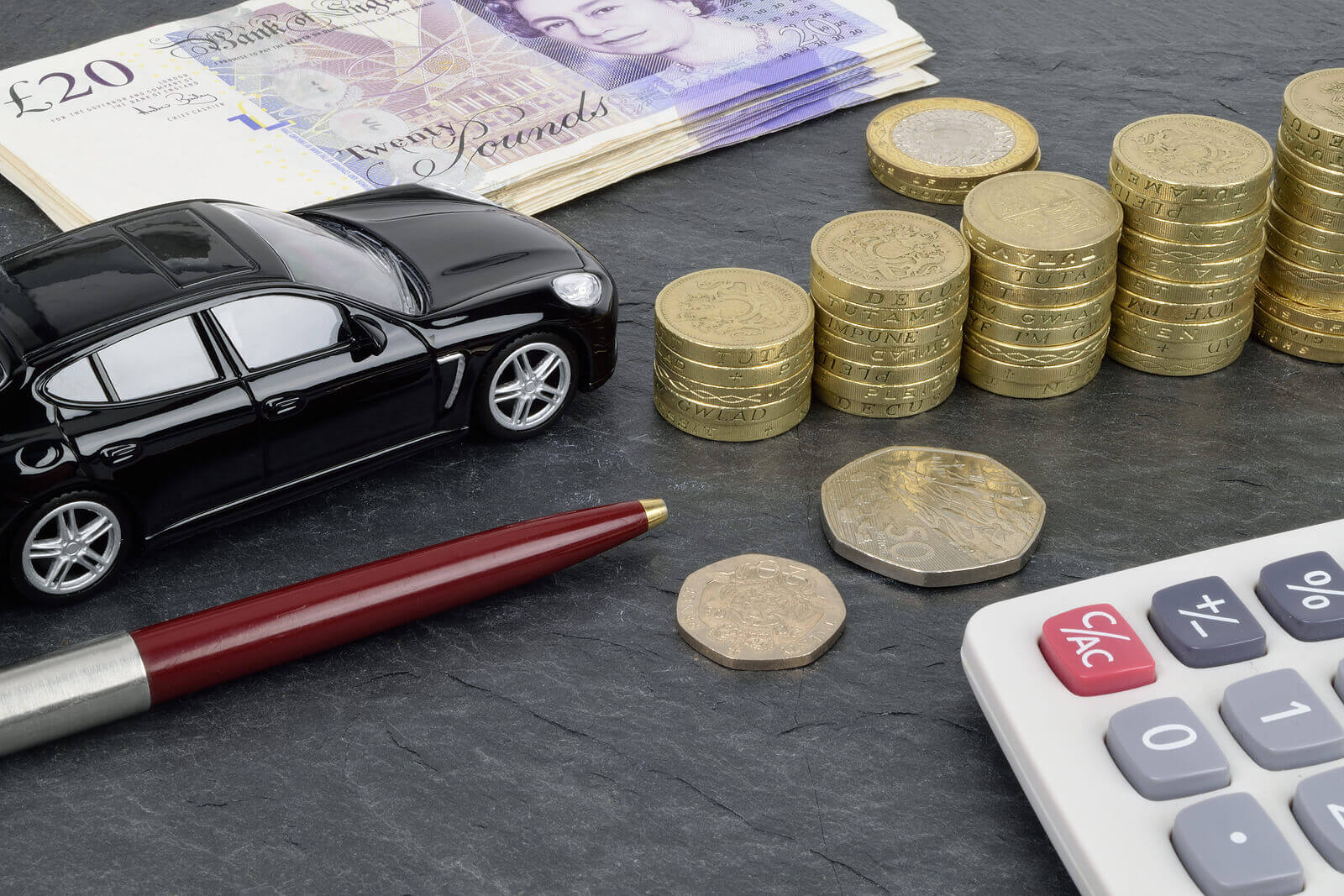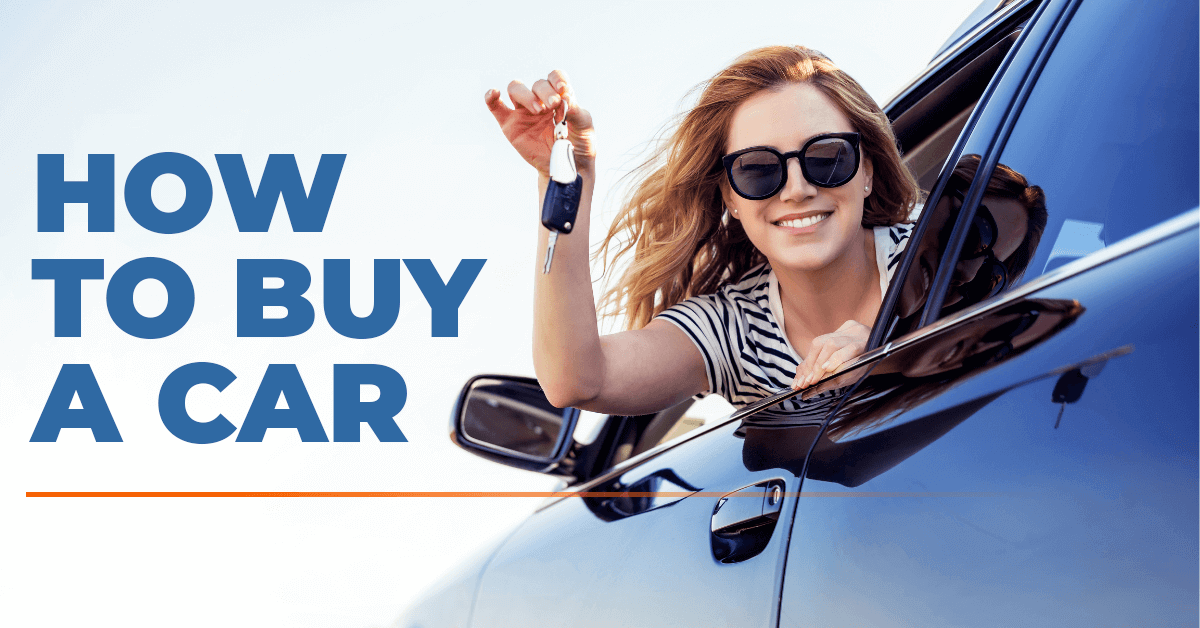Buying a car can be a scary experience. There's a lot to think about if you want the best deal. After all, the last thing you need is to be ripped off. This article will help you buy a new car successfully.
Once you've read our used car buying guide, you'll:
- Have some top tips for a great car buying experience
- Understand how car finance works
- Know what to check when buying a used car
- Know how to negotiate when buying a new car
Page Contents
Tips For Buying a New Car
Here are our top 5's Do's and Dont's to follow when buying a car.
- DO shop around and compare offers.
- DO budget strictly. Make sure you can afford the car you're buying!
- DO thorough research on the car. The last thing you want is a nasty surprise.
- DO be prepared to walk away from the deal.
- DO haggle. Don't let the salesperson dictate terms and do all you can to get the best deal.
- DON'T get greedy. Make sure you can afford the car in the long run as well as the short term.
- DON'T buy the first car you find. There may be a better deal out there.
- DON'T forget to insure your new car before buying.
- DON'T rush the process. Take your time to consider everything before making a decision.
- DON'T be pressured into a decision, either on finance options or for a car you don't want.

How Does Car Finance Work?
As car finance involves monthly repayments, all the options are linked to your credit score. If the lender doesn't think you pay the money back, your application may be rejected. However, if your credit score is good, you can buy a new car without having to pay the full amount upfront. Here are how the main options differ.
Personal Loan
A bank or building society will lend you the money to buy a car upfront and you pay them back over a period of time. This means you always own the car and you have unrestricted driving. Compared to some other car finance options, this is a lot of flexibility. A loan can last between 1 and 7 years, and many include large monthly repayments and high interest rates. If you choose a Personal Loan, make sure you're confident that you can afford this extra expense.
Personal Contract Hire (PCH)
PCH Finance works best if you're not planning to buy the car outright. You never own the car but can pay less money than other finance options. However, once the agreement ends, you have to return the car. PCH finance includes servicing and tax because you're leasing the car, so you only pay for fuel! However, you will have a yearly mileage limit (with extra charges if you go over), and it can be difficult to leave the agreement early. You have to pay an extra charge to cancel, which isn't helpful if you're struggling to make the repayments. Always check you can afford PCH Finance before using it to buy a car.
Personal Contract Purchase (PCP)
PCP Finance is the most popular option for buying a new car. If you buy through a dealership, they will usually offer this agreement. You pay an initial deposit and then monthly repayments for a fixed term. The deposit is usually 10% of the car's value, but you can pay as much as you want upfront. A PCP loan lasts between 2 and 4 years and, while you may end up paying more than PCH Finance, you have more options at the end of the agreement. You can either:
- Return the car
- Make a 'Balloon Payment' to pay off the outstanding balance and keep the car
- Make a 'Balloon Payment' as a deposit towards another car and enter into another PCP agreement
It is easier to cancel this agreement - but you must have paid half of the total cost to do so. Buying a car through PCP Finance also means you're subject to yearly mileage limits.
Make sure you know how many miles you drive during a year. This can help you keep the cost down when buying a car!
Hire Purchase (HP)
HP Finance is the most expensive finance option but also allows the most flexibility. You pay an initial 10% deposit (again, you can increase this) and then monthly repayments for a fixed period of time. These equal the full value of the car so can be much larger. Once you've made the final repayment, you own the car. Unlike PCH and PCP Finance, there are no mileage limits or extra charges during the contract. However, you do have to pay for insurance, servicing costs and all other expenses.
Credit/Debit Card
If you don't want to enter into a car finance agreement, you can also buy a car using a credit or debit card. You pay the full cost of the car upfront and own the vehicle as soon as you drive away. If you use a debit card, make sure you have enough money in your account and check that your card doesn't have a daily purchase limit. If it does, ask your bank if they can waive it for a one-off payment.

Once you've worked out how you're going to buy your new car, it's time to book a test drive.
What to Check When Buying a Used Car
If the car you want to buy isn't in the best condition, you deserve to know before parting with any money. Always complete a thorough inspection before buying a used car. Here are the five main areas to check before and during a test drive.
The Car's History and Documentation
You should only buy a used car if the seller can provide genuine documents. These include:
- The car's logbook
- Valid MOT status and full history
- Proof of ownership
A Private History Check is also a good investment when buying a car. Some used car sellers like Autotrader include a basic car check in the description but the full version can help you avoid a nasty surprise. They can cost as little as £20 and check whether the car has:
- Been reported stolen
- Outstanding finance
- Been in a serious accident
- The correct mileage is shown on the dash
- Been written off, repaired and then returned to the road
If the car check flags up a serious issue, DO NOT buy the car and report the seller to the DVLA. If you're happy to continue with the deal, you should book a test drive. This is the best way to work out whether you like the car without paying any money first.
On the test drive, you should check the following areas.
Exterior and Interior
Does the car look in good condition or are there signs of distress/accident damage? Any optional extras such as air conditioning and cruise control should also work properly. Make sure you like the driving position and that there is plenty of space in the back for passengers.
Engine
Engine problems can be incredibly expensive, so it doesn't make sense to buy a car that has one. Make sure you start the car from cold and inspect the engine bay for leaks, rust or any other signs of damage. It should also drive smoothly and without any strange noises. Check the engine bay before and after the test drive to make sure nothing has changed.
When buying a car, you should take extra care to check the coolant, brake fluid and head gasket. Our guides will help you if you're not sure what to look for.
Steering and Suspension
If the car isn't comfortable to drive or steering it feels difficult, it won't be fun to live with. The car should ride smoothly, soak up bumps well and drive straight and true. There shouldn't be any noises from the steering wheel or chassis either. The last thing you need after buying a new car is an expensive steering or suspension repair.
Brakes, Clutch and Gears
These are some of the most important parts of any car, so they should work perfectly before you part with any money. The brakes should stop the car properly and in a straight line. You should be able to engage every gear easily without any 'crunching' sounds. The clutch should feel firm and engage without much noise or issue. Most importantly, the car should feel safe and easy to drive. If you have any concerns, DO NOT buy the car unless the seller agrees to fix the issue themselves. These repairs can be expensive and stressful, so you don't want to make them your problem.

If the test drive goes well and you're happy to buy the car, it's time to sit down and make a deal. Here are our top 5 tips to negotiate the best deal when buying a car.
How to Negotiate the Best Deal When Buying a New Car
- Be calm, polite and friendly with the salesperson. Use their first name in conversation to make it personal.
- Be firm and clear on what you want, especially when it comes to finance.
- Don't take no for an answer - but don't get combative or aggressive.
- Be flexible. If the seller won't lower the price, even if you've found an issue, ask them to include the repair costs in the deal. Be prepared to walk away if they're not willing to budge.
- Shop around. If you find a better price, print the offer out and ask if the seller will meet it.
Buying a car can be scary but it doesn't need to be. When you follow these tips and take your time to find your perfect car, you'll be able to secure a great deal!






